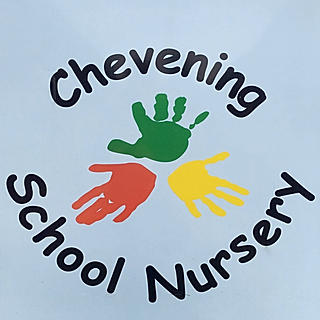Literacy
- chevening school nursery
- Mar 21, 2023
- 4 min read

“If you want your child to be intelligent, read them fairy tales, if you want your child to be more intelligent, read them more fairy tales”
Albert Einstein

We have celebrated World Book Day. Lots of wonderful costumes, pyjamas and many mystery Readers we had. We continue our our Literacy learning and thought about our favourite children’s books and why we enjoy sharing them with the children. Sharing books with your child is such a lovely bonding process, as well as introducing them to the language of storytelling, rhythm and rhyme, supporting their attention and focus and of course their listening skills. Reading is such a fundamental part of our every day life, and the average adult reads a few thousand words every day.
Reading opens up the world for your child; most of our education system is based on the ability to read and it is never too early to show children the joy of reading. The more you discuss picture books, talk about the characters and their feelings, point out words that begin with the same sound as your child’s name and generally explore and share stories, the wider and deeper your child’s vocabulary will become. They will become more empathetic and have higher levels of creativity and imagination.
Reading supports every area of your child’s development. Here we have broken down how books and reading fits into our seven areas of learning:

Handas surprise at snack time
Personal, Social and Emotional Development – children can safely explore feelings and behaviours when talking about them in a story. At Chevening Nursery we use books to spark discussions about our feelings, and how to deal with life’s challenges and changes such as a new baby being born into the family or starting school. Two of the books we use regularly includes The Colour Monster – a fantastic book about feelings and how we can express them safely and in the summer term we often use Starting School to talk about the children moving onto Reception.

Physical Development – handling books actually requires a lot of dexterity! Children have to not only use their fine motor skills to turn the pages but also their core muscles and their proprioceptive sense to be able to sit still and in a comfortable place to be able to read in the first place. Books can also inspire children’s physically active games such as pretending to be chased by the bear in We’re Going on a Bear Hunt, or stomping around like dinosaurs in Dinosaur Romp.

Communication and Language – the repetition in books supports children to widen and deepen their vocabulary as well as helping them to increase their attention span. Books are great catalysts for further discussion and even a book with no text can spark discussions and be a great talking point. When reading with your child, don’t be afraid to use the proper names for things – if you are looking at a picture of a castle tell them about the moat, drawbridge, the portcullis and the barbican – you’ll be amazed at what they remember!

Literacy – has your child asked you to read the same book for three weeks on the trot?! Repeating books and children learning texts off by heart is one of the key ways that literacy is taught in schools now as children need to have a strong story telling vocabulary before they can be expected to write their own stories. Helping your child to learn these texts through repetition, and then encouraging them to “read” the story back to you helps them to develop their story telling skills.

Maths – there are lots of books that support mathematical development, from counting books to books that encourage children to explore shape, space and measure.

Linda a former nursery mum and colleague was one of our mystery Readers
Understanding of the World – reading about different cultures, the moon at night and creatures at the bottom of the ocean can often be a lot more practical than actually visiting them! Books unlock a wider world for our children and open them up to finding out things that they maybe had never thought of before, and these can be both fiction and non fiction.

Thank you to all our wonderful mums and dads coming to read to us.
Expressive Arts and Design – books support children’s imaginative play by opening them up to new magical and faraway worlds. The more creative a child, the more they will be able to imagine and solve more abstract concepts. Any books that feed their imagination can do this, such as books that tell the stories of their favourite TV characters. At preschool, we also encourage children to play with reading materials such as catalogues and leaflets – showing them that the printed work is not always in book form. We encourage them to write notes and secret messages to each other, showing them the value of the written word, which is so important in this age when most reading is done on a screen. So next time you order a takeaway, write shopping list or read your mail, share what you are doing with your child and show them how useful the written word is – they might just start to use it in their imaginary play too!
We hope you have enjoyed thinking about the wide ranging benefits of reading with your child. If you would like any further information, please speak to your child’s key worker.





Comments